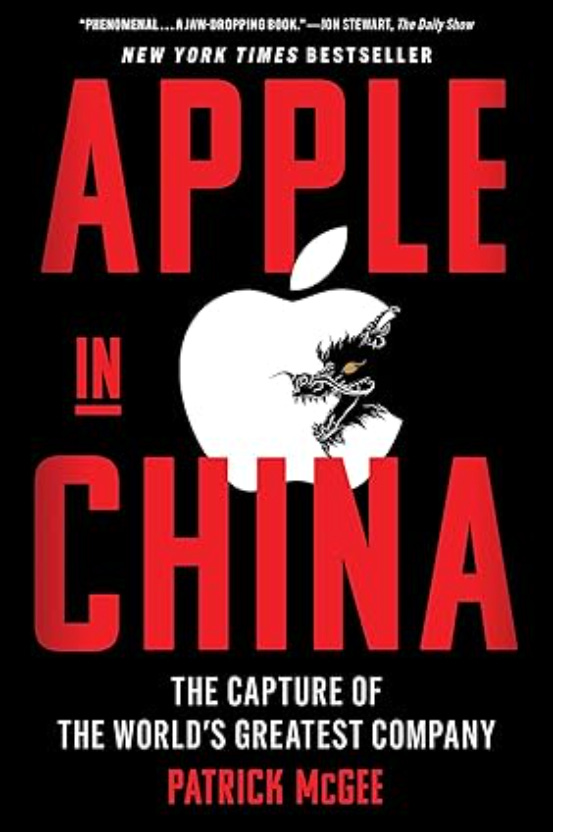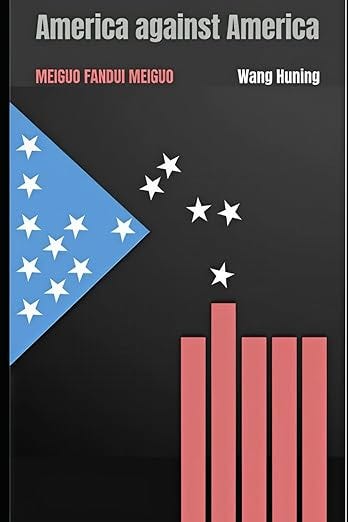Personal Science Week - 251016 China
What little I know about the Middle Kingdom
Long-time readers know that I’ve spent many years working and living in Asia. In fact, that’s where I first met the late personal science OG, Seth Roberts, when he too was living in Beijing.
This week I’ll summarize some of the things I’ve learned that might be useful to fellow personal scientists and others.
Personal science is an attitude of open-minded skepticism, a willingness to try new things but always to subject new ideas to rigorous empirical testing as much as possible. Nullius in verba – take no one’s word for it. What better way to expose yourself to new ideas than to get to know a completely different culture? That’s the reason that, after college, I moved to Tokyo Japan, surrounding myself with non-English speakers as a way to learn a new language and culture. That turned out well enough for me that after returning for many years of grad school and work, I eventually moved back, this time to Beijing China. And boy was that different!
The excellent and well-researched new book Apple in China by Patrick McGee resonated with me because so much of the history of Apple intersected with my own experience (I worked for 6 years for them in Tokyo long ago). Apple has always been famously obsessed with owning the entire product experience, from custom hardware to software to marketing, so the book traces how a company so focused on control could find itself dangerously dependent on outside factories. McGee concludes that China provided Apple an ideal manufacturing partnership in exchange for absorbing Apple’s know-how—a genuine symbiotic relationship where neither could have succeeded without the other.
In fact I guess you could say that I was involved in a similar exchange while working for Microsoft in Beijing during the same period. The Chinese government ensured we had everything we needed, including top-notch people who were willing to work long hours on projects that US engineers found too routine. (My team worked on Mac Office, a decent enough product but hardly a priority within Microsoft). These were among the smartest, most dedicated engineers I’ve ever known, and now many of those former colleagues dominate senior management at all the top Chinese tech companies.
So what did I learn, and what does that have to do with personal science?
About China
There’s a quip among long-time China hands that summarizes the complexities of trying to understand the subtleties of the place: “Spend a week in China and you’re an expert. A year and you know a little. Ten years and you know nothing.”
Here are a few basic ideas that give a sense of the scale of the problem.
1. China is very big. Not just population (almost 5x the US). There are dozens of cities with populations over 10M that you’ve never heard of: Chongqing (32M), Chengdu (21M), Tianjin (14M), Guangzhou (19M), Shenzhen (18M). For context, the US’ largest city New York City has 8M people.
2. China is diverse. Compare Italy or Greece to Norway or Russia and you get an idea of the vast differences among Chinese people. Different Chinese regions are as different from one another as different European countries—in dialect, cuisine, culture, and even appearance.
3. China is more of a civilization than a country. Even today many Chinese tend to think of themselves more as members of a common race than as citizens of a specific country with borders. In fact, the word “China” (the country, 中国 Zhōngguó) didn’t acquire its modern meaning until the early 1900s. Before that, people identified with their dynasty, their region, or simply as “people under heaven.”
I’m always surprised when Western commentators make sweeping generalizations about “what China thinks” or “what China will do”—as if 1.4 billion people spanning a continent could be reduced to a single monolithic entity.
Chinese Government
Americans tend to think of China as a totalitarian dystopia where government thugs control every aspect of society. Sure, some of the top leaders may be more idealistic than others, but ultimately—we’re told—their legitimacy rests on their total control of a population that would rise up and fight for their democratic freedom if given the opportunity.
Spend a little time talking to normal people and you’ll realize how incomplete this picture is. The vast majority of Chinese people are quite content with their government, and certainly wouldn’t want Western-style democracy imposed on them. This isn’t because they’re brainwashed—it’s because they judge their government by different criteria than Americans do.
Long-time China-watcher Kaiser Kuo calls this “performance legitimacy” versus “procedural legitimacy.” Americans obsess over whether the right processes were followed: Did everyone get to vote? Were the rules followed? Chinese people care more about: Are things getting better? Is the government competent? Can I trust the system will work for me?
This is a fundamentally different way of thinking about governance. In America nothing is more sacred than the right to vote, and we believe absolutely everyone should participate in elections: rich or poor, educated or illiterate, everyone gets one vote. That meth guy who sleeps under the bridge has just as much say in a school board election as the mother who won Volunteer of the Year.
Chinese people find this bizarre. Why would you let someone who knows nothing about education policy vote on education? Why would you ask someone who’s never run a business to vote on economic policy?
I’m a proud American, and I prefer the way we do things here. But if you want to understand the difference between countries, you need to understand that they optimize for different things. Americans optimize for representation and rights. Chinese optimize for competence and results. Both systems have obvious failure modes.
Wang Huning and Observing America
To see how thoughtful Chinese intellectuals view America, read Wang Huning’s (王沪宁) America Against America. Wang spent time in the US in the late 1980s and wrote detailed observations about American culture and politics. He’s now one of the most influential behind-the-scenes thinkers in the Chinese government, a key advisor to all recent Chinese leaders.
His key insight: “In America, it is not the people who master the technology, but the technology that masters the people.”
He saw how American individualism, which seems like freedom, actually makes people more isolated and vulnerable to manipulation. He observed how American politics turns everything into a spectacle. He noted how Americans seemed to have lost any sense of shared purpose or common good.
Reading Wang’s book in 2025, knowing he wrote it in 1988, is eerie. He predicted so many of America’s current dysfunctions—not because he was a prophet, but because he was genuinely curious about how America actually worked, rather than how it presented itself.
Back in PSWeek250529, we discussed how travel can open your mind, but we cautioned that “travel requires deliberate integration and reflection, not just passive exposure to novelty”, something I think Mr. Wang (who has not been back to the US since) represents well.
Personal Science Weekly Readings
Speaking of China, researchers there recently claimed to have reversed aging in primates using “senescence-resistant human mesenchymal progenitor cells.” Given that Chinese research has a documented fraud problem—with studies showing around 54% of researchers admitting to fraud—we should be cautious. But we should also recognize that the sheer volume of Chinese research means they’re making genuine breakthroughs too.
Speaking of fraud and school board elections, the head of the largest public school system in Iowa had been living in the US illegally for decades, had a criminal record, and might even be guilty of voter fraud. Although you can read this case as classic DEI run amok—school board officials looking past obvious red flags—a New York Times detailed summary makes me wonder something else. What if, despite his fraudulent record, he was actually an effective and inspiring leader? I don’t know anything about the case, so maybe he was bad at his job too (certainly, integrity and honesty are important qualifications), but it reminds me that something is lost when we only look at credentials. How many of the truly transformational people from 100+ years ago would never have had the chance to prove themselves under today’s credential-based system? Benjamin Franklin? Harry Truman (no college degree)? Thomas Edison (3 months total school)?
People Science keeps cranking out new studies that anyone can join. If you suffer from “digestive discomfort”, they’ll give you $250 to test out a new probiotic. Details here
Astral Codex Ten (aka Scott Alexander) runs an incredible grant-giving organization that should be inspirational to all personal scientists. These are people who get small (usually under $100K, often only $5-$10K) grants for small-scale, but potentially revolutionary scientific or technological breakthrough ideas. The 2025 ACX results include Ben Engebreth ($6K) for a new asteroid-hunting algorithm, and Misha Gurevich ($50K) to manufacture germ-killing far-UVC lamps.
About Personal Science
We publish this newsletter each Thursday for anyone who wants to apply scientific thinking to everyday life.
Personal Science is about taking nobody’s word for it—not experts, not authorities, not even us. Test things yourself when possible. Question assumptions. Seek truth over comfort.
If you have questions or topics you’d like us to cover, please let us know.



It's easier to keep your citizens content while your GDP is growing 5-7% per year, and standards of living are improving rapidly. Even so, China appears to require a lot of internal security resources to keep their society "harmonious"... Taiwan offers a glimpse of what China could be, with a slightly less stifling government. I'll also add that the culture in Japan feels much more alien to me than China/Taiwan, but I've only visited these countries briefly, never lived there.